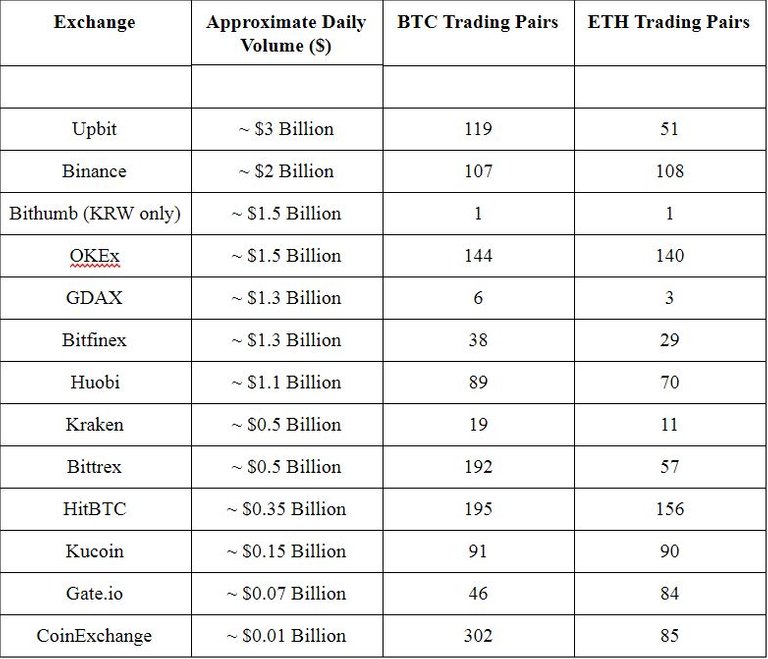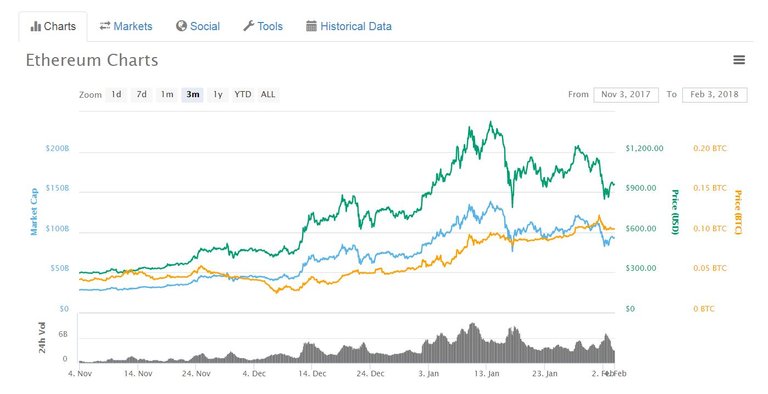
In the traditional financial world, we've all gotten used to calling the dollar the world reserve currency. Backed by the power and "stability" of the US government, the dollar has been arguably the most powerful economic force the world has ever seen. However, with Bitcoin and the nascent cryptocurrency market giving the average person the choice to divest from the fiat currency wars and become free from government monetary control, the dollar's hegemony may be threatened soon from a non-governmental source. In order to understand how the crypto market dynamics work, we first have to identify the functions of the dollar as the reserve currency.
A reserve currency is the primary currency that an entity uses to trade for commodities, goods, assets, services, and other currencies. It is also the currency by which the values of all assets and liabilities held by entities are judged against. So let's break this down. Oil is one of the top commodities in the world, since it is used for fueling our vehicles and used for synthetic pesticides while farming. Currently, the majority of oil trading across the world is done in exchange for US dollars. Furthermore, the price of oil is judged by dollars per barrel. This shows how the dollar acts as the reserve currency for oil exports and trading across the world. Now, there can be more than one reserve currency at a time used by a government or other entity. The Euro, Yuan, and Yen all have their share of the international exchange market. So how does this relate to the cryptocurrency market?
Here is BTC and ETH trading pair data from all of the top crypto exchanges by volume as of February 3rd, 2018:
As we can see, both Bitcoin and Ethereum are the exchange cryptocurrency of choice for traders across the board. Combined, they have a dominant position for all trading pairs. According to investing.com's crypto trading pairs page, Bitcoin represents 31% of all crypto trading pairs, while Ethereum represents 14%. To have these percentages in the Wild West that is cryptocurrency trading is an impressive feat.
Now, in the traditional world, the assets and services are centrally owned and controlled. This is not the case with the crypto market. As is the case with many ICO's and projects, the assets and services are being decentralized and are moving to the blockchain. Whether it is data, energy, financial services, medical services, advertising, publishing, app platforms, or otherwise, Bitcoin and Ethereum are being traded for decentralized assets. No government or other centralized entity controls these assets; money will be made as the decentralized market works on its own with a public incorruptable cryptographic ledger.
If you follow the crypto market, you've noticed that as Bitcoin goes, so goes the altcoin market. Thomas DeMichele of cryptocurrencyfacts.com says that BTC trading pair dominance is to blame for this phenomenon. "I’ve learned over time that the fact that every major exchange offers BTC trading pairs (where you can trade BTC for alts rather than alts for fiat or USDT) is the key to understanding why alts follow BTC. Simply put, because BTC is the top coin in terms of being traded for other alts, market cap, volume, and general popularity, it is at the center of the crypto economy and has some serious gravity behind it." Furthermore, the correlation in value can be attributed to the fact that when Bitcoin goes on a run, investors take profits from BTC and take a position into the altcoins. Then, when the altcoins go on a run as a result, they take profit and consolidate back into BTC. The only major cryptocurrency that has an independent trajectory from this phenomenon is Ethereum. In the recent cryptocurrency crash in late January 2018, Ethereum held its early-January value a lot better than most of the market. Ethereum proved its status as an alternative reserve currency by holding its early-January value while Bitcoin fell to its mid-November value.
Finally, cryptocurrencies' immutability, anonymity, and integrity through cryptography make them the perfect reserve currencies. As early Bitcoin investor Trace Mayer told the Epoch Times, "You can’t freeze, you can’t confiscate, you can’t chargeback, you can’t do a lot of the things that our current financial system has introduced." What we must realize is that cryptocurrencies have democratized the economic future for the billions of people that have been left out of the system that has benefited the financial elite.
Thank you for reading! Sources are linked below:
https://www.investing.com/crypto/currency-pairs
https://coinmarketcap.com/exchanges/
https://cryptocurrencyfacts.com/2017/10/19/why-do-altcoin-prices-often-follow-bitcoin/
https://www.theepochtimes.com/trace-mayer-bitcoin-can-become-reserve-asset_2418481.html


